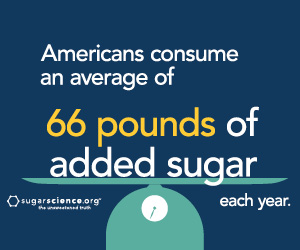 If you pay any attention to advice about healthy eating, you’ve heard that you should avoid added sugar as often as possible. Now a team of health scientists from the University of California, San Francisco has launched a new web site that provides scientific evidence about sugar and its impact on health.
If you pay any attention to advice about healthy eating, you’ve heard that you should avoid added sugar as often as possible. Now a team of health scientists from the University of California, San Francisco has launched a new web site that provides scientific evidence about sugar and its impact on health.
The information on sugarscience.org comes from researchers reviewing more than 8,000 scientific papers examining how sugar impacts our bodies. The goal is to “take information out of medical journals and make it available to the public, to help individuals and communities make healthy choices.”
Medical doctors, psychiatrists, nutritionists and public health researchers are all working on the project. Their web site is full of evidence and resources to improve public awareness. They draw some interesting conclusions from the body of evidence on sugar consumption. Among them:
- Americans consume far too much added sugar. The American Heart Association recommends no more than 6 teaspoons, or 25 grams, of added sugar per day for women and 9 teaspoons, or 38 grams, for men. Yet, the average American consumes 19.5 teaspoons, or 82 grams, every day.
- Sugary drinks are especially bad for you. That’s because they don’t include the fiber to slow the absorption of sugar into the body. “As a result, the journey from liquid sugar to blood sugar happens quickly, delivering more sugar to the body’s vital organs than they can handle. Over time, that can overload the pancreas and liver, leading to serious diseases like diabetes, heart disease and liver disease,” the web site says.
- It’s difficult to know how much added sugar is in processed foods. “While product labels list total sugar content, manufacturers are not required to say whether that total includes added sugar, which makes it difficult to know how much of the total comes from added sugar and how much is naturally occurring in ingredients such as fruit or milk,” they say. “That makes it very difficult to account for how much added sugar we’re consuming.”
The take-home message is extremely clear: Eating foods with added sugars is bad for your health. The current evidence shows it has strong links to diabetes, heart disease and liver disease. Researchers are looking for additional evidence about the relationship between sugar consumption and Alzheimer’s disease and cancer.
On a personal note, adding sugar to so-called “health foods” is a pet peeve of mine. Many snacks like yogurt, granola bars, applesauce and even bread have astounding amount of added sugar in them, which people unknowingly consume. I’d much rather save my sugar splurges for sweet treats rather than those times when I believe I’m eating something healthy.



Speak Your Mind